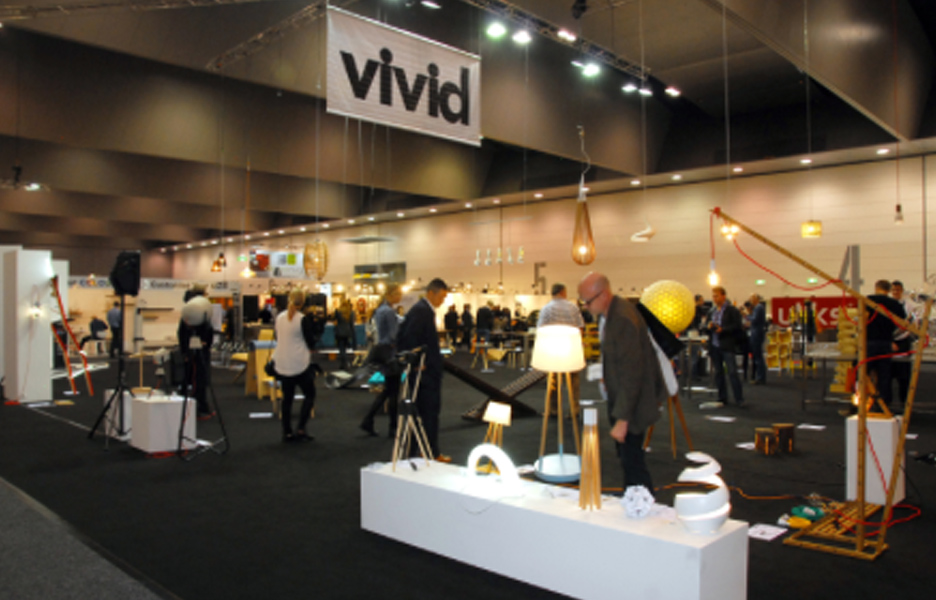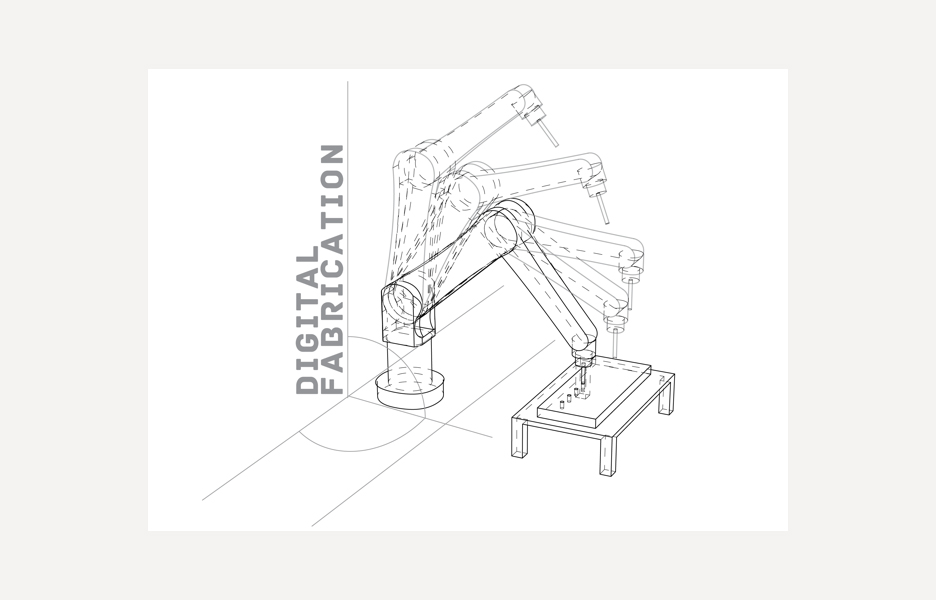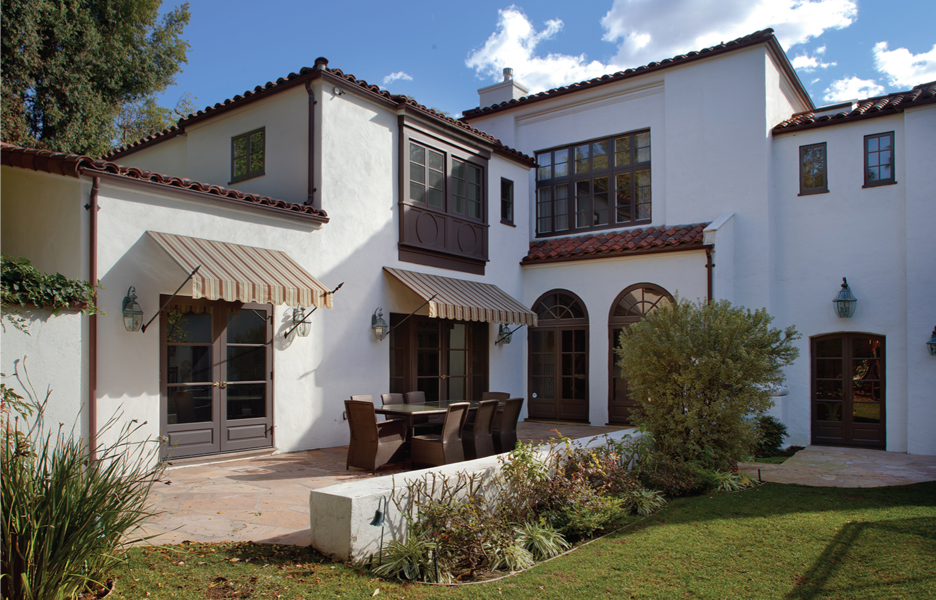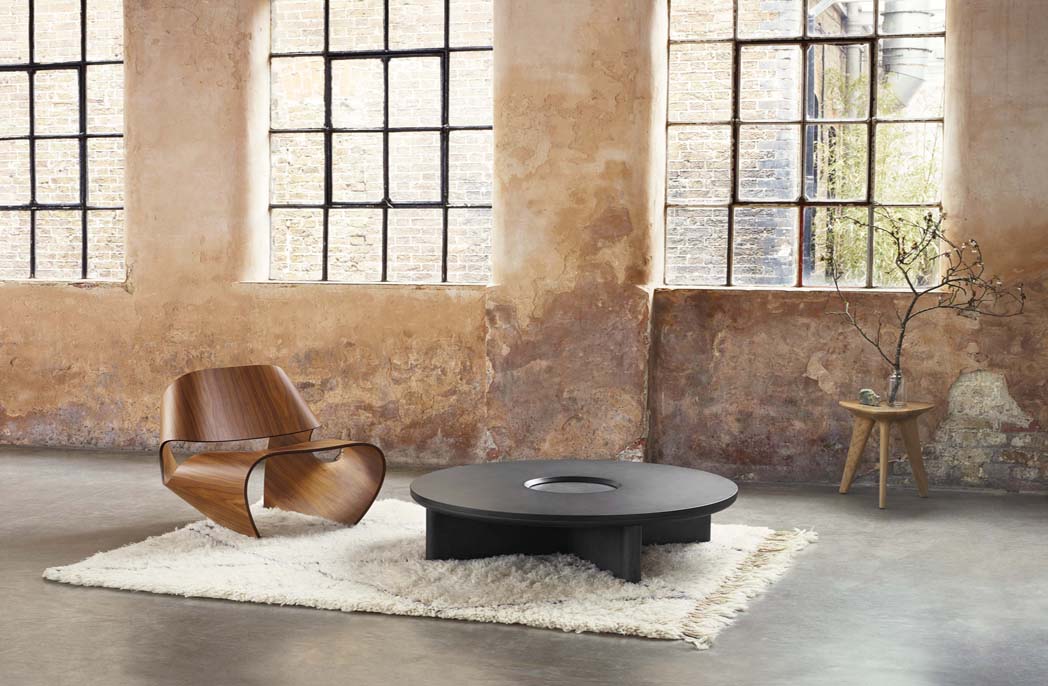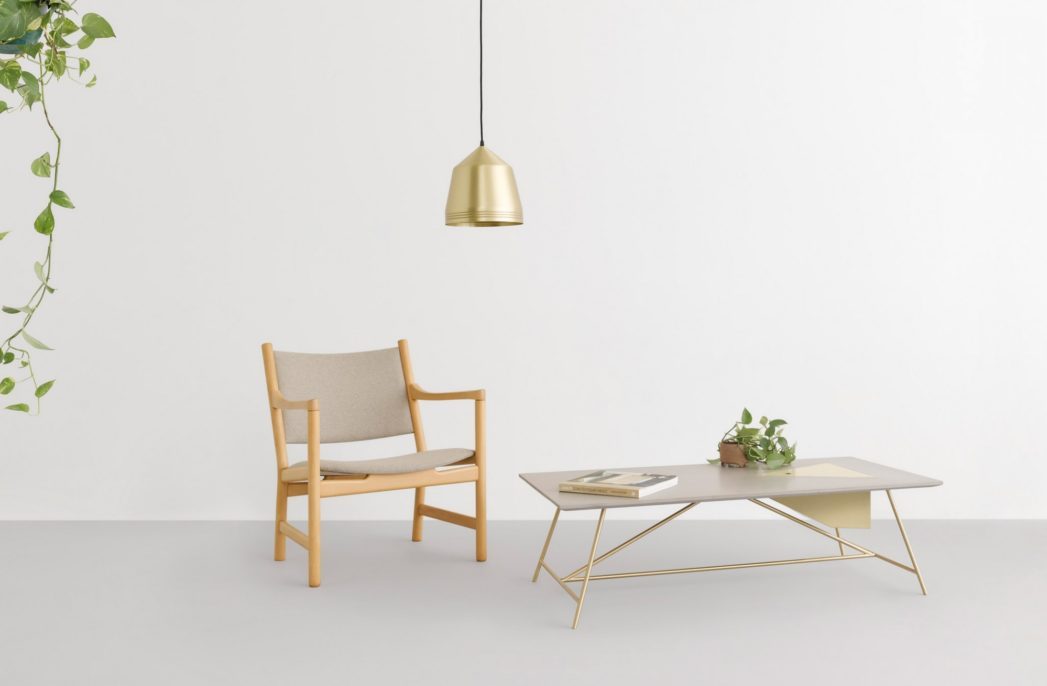
Ewert Leaf celebrates traditional and contemporary styles on Lygon Street with Figlia
Ewert Leaf celebrates traditional and contemporary styles on Lygon Street with Figlia
Share
Transforming traditional and redefining this classical Italian pizzeria, Figlia brings a contemporary approach to the Italian dining experience in Melbourne’s iconic Lygon Street.
The project connects to shape and embodies the local Brunswick East context and feel. While celebrating the history and tradition that is unique to Lygon Street, the project is designed to feel like an approachable venue that welcomes everyone.
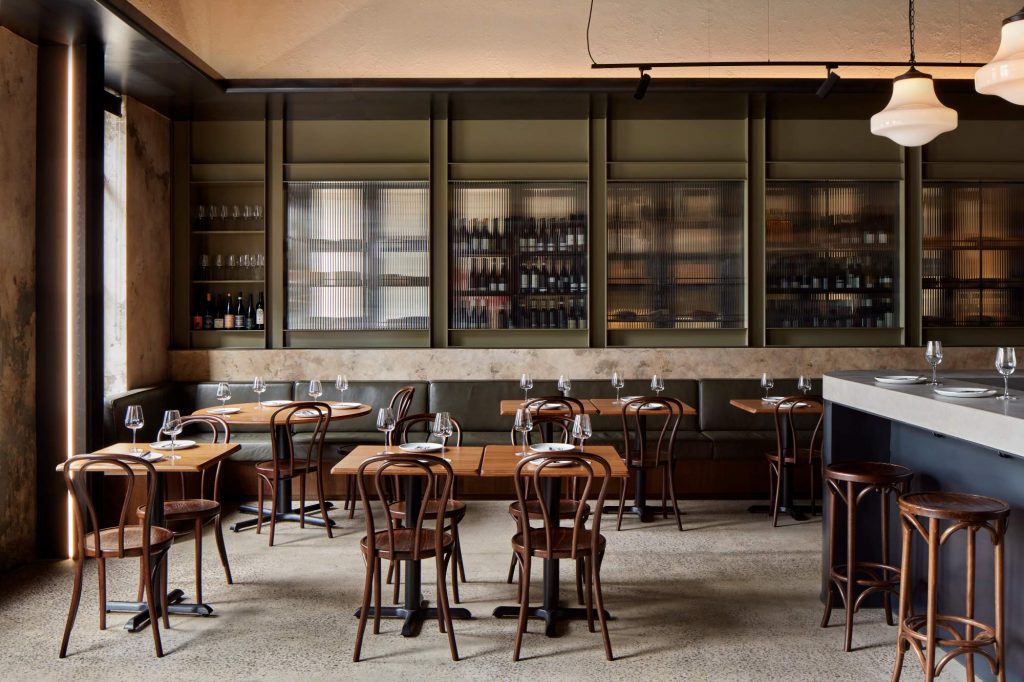
Designed by Melbourne multidisciplinary studio Ewert Leaf, this project was a no-brainer in creating a unique, modern contemporary design fitting with Lygon Street’s vibe. Ewert Leaf, associate director Ana Calic is one of the masterminds behind Figlia’s design. She describes it as “a place where everyone is welcome, which anchors its neighbourhood and feels a part of the community”.
Figlia is part of the TipoOO restaurant chain, run by experienced names in the industry, Andreas Papadakis and Luke Skidmore. As opposed to its sister restaurants, Figlia brings in a unique character offering a space that is inclusive, approachable and casual.
Melbournians familiar with Lygon Street understand that quality and comfort are at the forefront, and Figlia does exactly that, bringing in a genuine dining experience through its design. The project features an open-kitchen design – bringing an authentic taste of Italy as customers watch their pizza made in the open-fire oven.
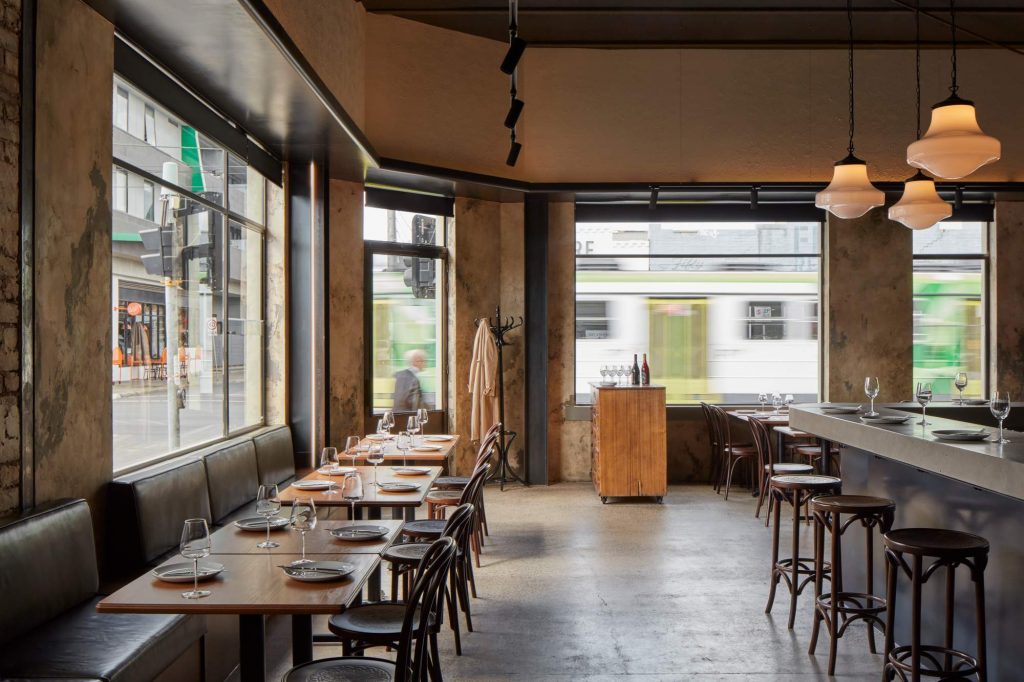
Inspired by the local Brunswick community, Ewert Leaf sought to preserve the local aesthetics and incorporated them into the design of the project. The concept was simple – celebrate and reinstate the connection to the strong Italian and Greek heritage for which Lygon Street is famous.
As the historical street was built by a community of working-class migrants championing their self-taught crafts and homegrown industries, this culture was framed heavily in the design.
Calic says that the material palette was inspired by the “backyard workshop”, signifying the finishes were both humble and robust. Patinated steel in the space showcases raw and unrefined material detail, reflecting the traditional metal craftsmanship that is at home in Lygon Street’s community. The rawness of the material featuring warm timber veneers is highlighted by soft ambient lighting – and ultimately creates an intimate setting.
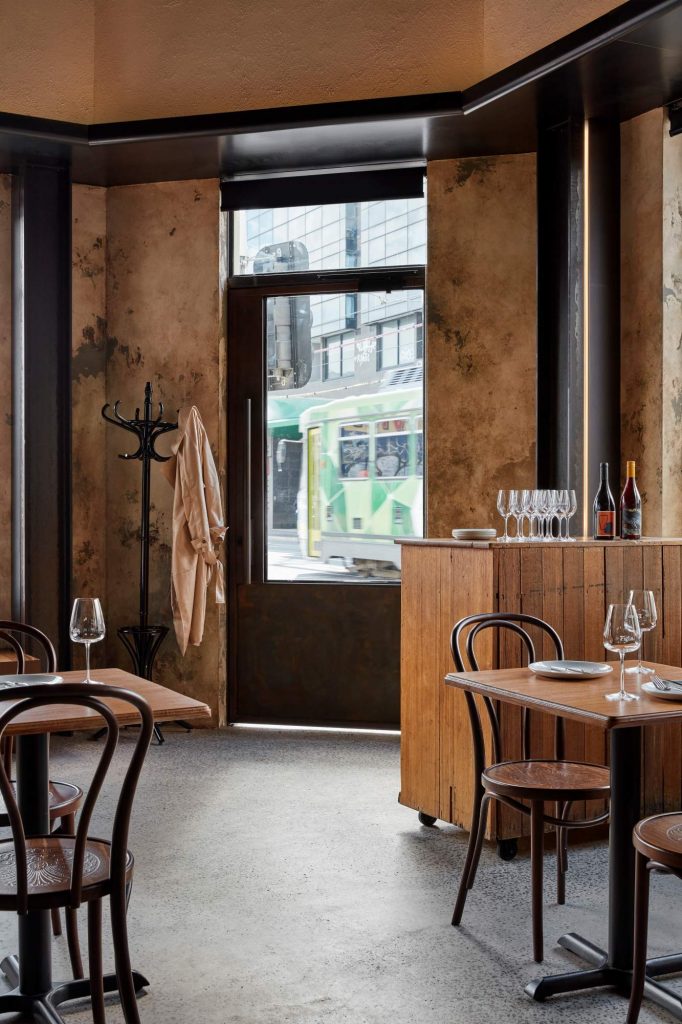
The buildings along Lygon St remain untouched, extenuating the existing building’s rawness, but the designers at Ewert Leaf felt “it needed an injection of personality and presence”. The installation of a new façade on a corner site created an openness that allows passers-by to notice the warm energy of the site.
Following traditions, the steel-framed windows and exposed weld shape the narrative of the space but also frame the streetscape’s local context. Calic says that the space allows the owners to stack wine boxes in most corners, as well as furniture that has been acquired over the years.
“It gives a real ‘lived in’ feeling. This goes hand-in-hand with the food offering, providing an overall authentic Italian dining experience. Luke and Andreas to blossom their own personalities and style throughout,” she explains.
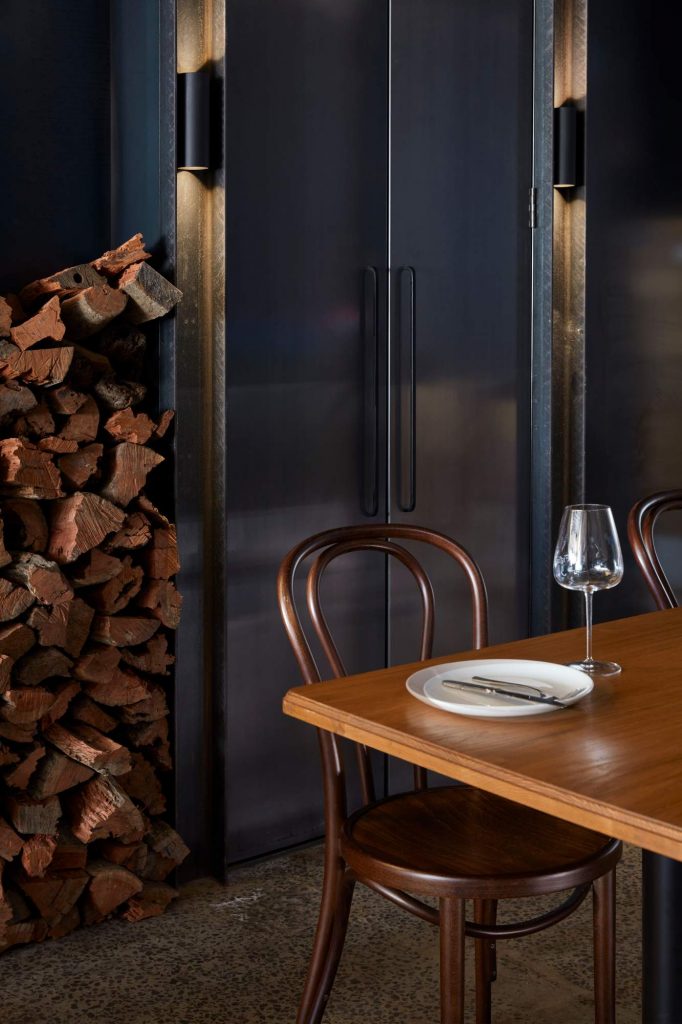
The layout of the restaurant was also carefully considered. The hierarchy between the bar, kitchen and seated areas work together in unison to produce a comfortable atmosphere.
The large scale of the bar does not dominate or dwarf the surrounding seating. Instead, it creates an intimate space. The joinery and lighting also elevate the space into a memorable experience that calls on its history. The compelling detailing begins from the door handle, as the crafted raw steel handle creates a tactile experience and begins the first connection to the space. Calic describes this as the “perfect introduction to the authentic dining experience to follow, creating an instant memory”.
Throughout the restaurant, lighting plays a key role in softening the hard steel surfaces and submerging the experience in a pleasant feel. Unique pendants and concealed soft lighting elevate the textured walls and showcase the organic qualities of burnished steel.
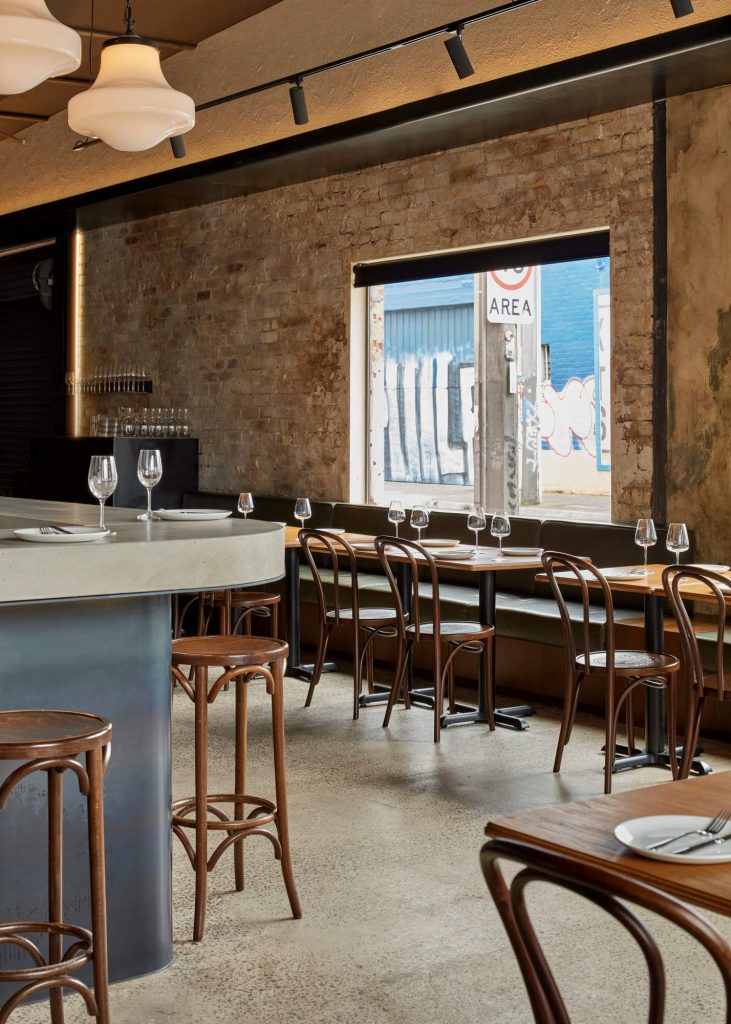
The project highlights innovative and excellent design practices as it showcases the importance of merging traditional with contemporary. Calic criticises the widespread trend in the Melbourne hospitality scene to work towards an “Instagramable” space that will go viral. Figlia is “quite the opposite”.
“It is not about a trending Instagram moment. It leans back into the traditional basics and does them exceptionally well. It’s about comfort food, great company and friends, wine and the memories made at your local Italian pizza restaurant. The space isn’t trying to be the next best thing, but rather the goal is to have a timeless impression on Brunswick and the wider community. It is a nice addition to the Melbourne hospitality scene and a welcome change from the overstimulating venues,” she says.
As the newest addition to Lygon Street, Figlia is making noise, stamping its name on the scene via signature dishes. The pizza’s light sourdough made with heritage-wheat flour is fired to perfection. In tune with the bar’s design, Figlia’s unique menu applies a new taste to tradition.
From its monolithic central bar to its steelworks, Figlia truly celebrates the warmth of the migrant community that has been established in Brunswick East.
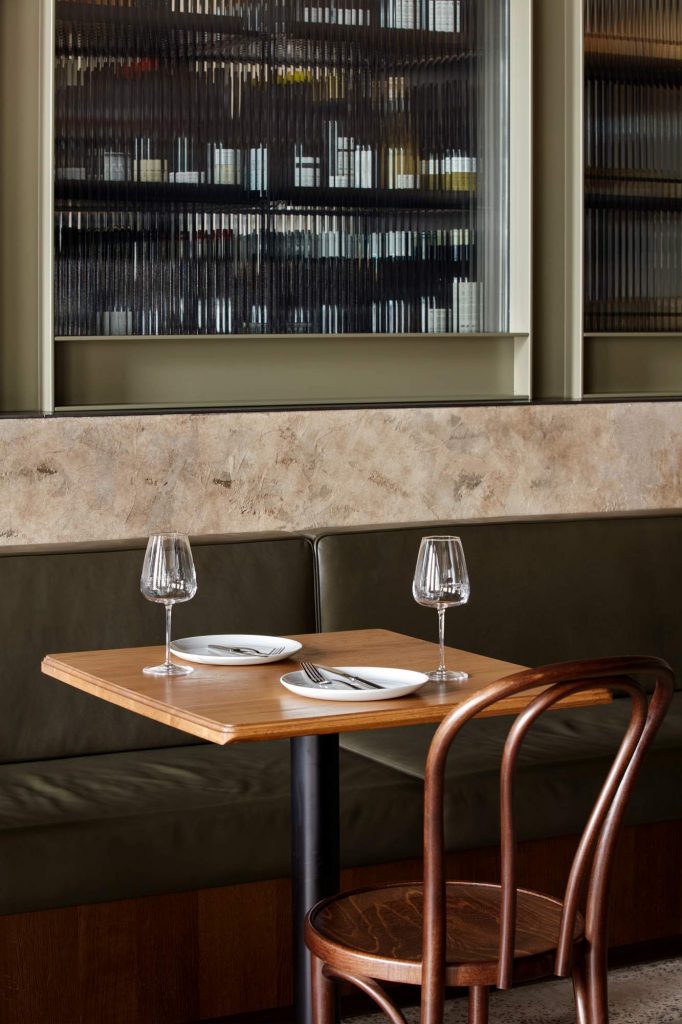
This article is from AR172. To subscribe to Architectural Review click here.
Photography by Jack Lovel.
Sticking with hospitality design, let’s start preparing your dining calendar with an extensive list of excellently-designed hospitality projects in Australia.





